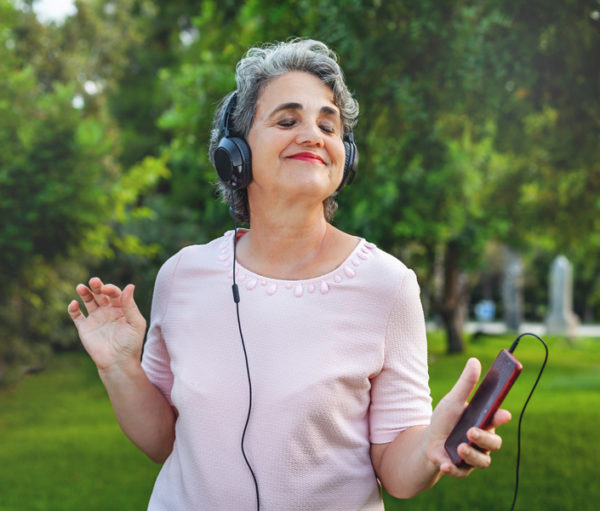A Musical Way to Promote Healthy Aging

Have you read the recent research showing that people who played an instrument when they were young have a lower risk of dementia in their later years? Apparently, taking piano lessons or joining the school band is very good for the developing brain. Reported Emory University researcher Brenda Hanna-Pladdy, “Musical activity throughout life may serve as a challenging cognitive exercise, making your brain fitter and more capable of accommodating the challenges of aging.”
If you didn’t play an instrument back in the day, is it too late? Luckily, no! According to experts from Penn State’s Perelman School of Medicine, “While learning to play an instrument as a child provides life-long benefits to the brain, taking music lessons in your 60s—or older—can boost your brain’s health as well, helping to decrease loss of memory and cognitive function.”
So check out musical opportunities in your community. Join the rhythm band or choir at your senior living community or take a music class at your local community college. Maybe your faith community has a bell choir? As businesses reopen, visit a music store and try out some instruments to see which one appeals to you and is in your price range. Your grown kids or grandkids might even have a guitar or clarinet gathering dust in the closet.
Playing an instrument isn’t the only way to benefit from music. Listening to it is also good for us. In April 2021, the American Geriatrics Society reported that seniors who listen to music at bedtime experience better sleep quality. They speculate that calming music may improve sleep by slowing the heart rate and breathing and lowering blood pressure. “If you’re having trouble sleeping, listening to music can be a safe, effective, and easy way to help you fall and stay asleep. It may also reduce your need for medication to help you sleep,” the researchers advised.
Another recent study, this one from the American College of Cardiology, showed that heart attack patients experienced much less anxiety and pain during recovery if they listened to enjoyable music for 30 minutes each day. Those patients also lowered their risk of having another heart attack, most likely due to the soothing effects of music that lowered the levels of harmful stress chemicals in the body.
Other studies show that listening to music can motivate us to exercise, can bring us together with other people and create a sense of community, and even decreases overall perception of pain. It’s an excellent pastime for people with visual impairment.
Music is also a great stimulus for reminiscing and life review. And music has the capacity to reach hidden brain areas. Serving as a storehouse for memories, it’s an excellent activity for people with memory loss. When people with dementia listen to music, they may not only be more able to recall the past, but also be more aware and alert in the present.
These aren’t by any means the only benefits we stand to gain by adding more music to our lives. Music is everywhere! Find an online radio channel you enjoy. While live music is mostly off-limits these days, you can watch live or recorded performances online. If you live in a senior living community, check out musical offerings in the activities program. Create a playlist of your favorite music (your grandkids will mostly likely be happy to help). And stretch yourself a little—try listening to new genres! It’s nice to know that something so pleasant is so good for us.
Source: IlluminAge
The information in this article is not intended to take the place of your healthcare provider’s advice. Ask your doctor or a certified musical therapist about ways music might benefit you or a loved one.


